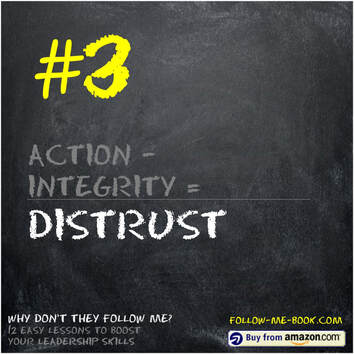
Through my years I’ve seen many leaders at all levels struggle with getting things done either by having to work late in the evenings and on weekends or by completely missing due dates. As I’ve talked with these leaders, they just consider it part of the job, unable or unwilling to do anything about it. I found myself early in my career doing the exact same thing; setting unrealistic expectations and killing myself to try to meet them, only to have a limited success rate of delivering on time. I hated that hamster wheel.
The good news is you don’t have to accept this as the status quo. Here are six simple principles to get better control of your work and be more deliberate about what you get done:
1. Make your to-do list a “done” list – It’s commonplace to keep a to-do list. My approach is to apply four changes to the prototypical to-do list:
2. Ensure your calendar includes everything that consumes time in your day, not just meetings – I’ve seen countless examples of people only putting meetings with others in their calendars, making their days crammed with meetings, then burning the midnight oil to get non-meeting work done. Any activity that consumes time in your day--meetings, work time, personal time, professional development, or other activities--deserve time scheduled in your calendar. 3. Schedule a recurring Friday afternoon progress and planning meeting with yourself – Near the end of your day on Friday, block out 30 minutes on your calendar to do three things:
4. Make difficult calendar choices – If there just aren’t enough hours in the week to get things done, look to see what needs to change. Perhaps it’s a change in due date or altering or deferring other items in your calendar that are taking up time. Whatever the case, be willing to make some decisions about what you do and who you meet with. 5. Find hidden time in your calendar – Are there meetings you just don’t need to be at? Are there one-hour meetings that can be done in 30 minutes? Can the frequency of recurring meetings be reduced? Can some things be done through offline communication, i.e. email? Ask yourself where time spent in meetings can be reduced or eliminated without materially adverse business impact. 6. Remember that you own your calendar, it doesn’t own you – Certainly things may happen during the week which could alter what you get done (or when you do it). Don’t beat yourself up if it does happen, just look at the frequency and reasons behind the changes. If they’re happening on an exceptional basis because of unforeseen work hitting your plate, then accept it as part of the job. If they’re happening frequently, then it could be you’re either not realistic in your planning or you’re allowing yourself to be distracted. It’s up to you to decide, just be honest with yourself.
A common thread through these principles is discipline. You can put the best-intentioned techniques in place but if you don’t follow them, you’re dooming yourself to emails at midnight. Seriously consider the principles, put your spin on them, and put them into action.
Lonnie Pacelli
Keynote Speaker | Board Director | Autism Advocate | Author | Project Management Expert | Microsoft/Accenture Veteran See his books on Amazon.
2 Comments
Michelle
2/19/2021 06:57:16 am
I read your article "What 16 years working from home taught me" and it led me to this article. Thanks, these are great pointers. Number 3: "Schedule a recurring Friday afternoon progress and planning meeting with yourself " - so important! I will have to start doing that more frequently.
Reply
Carl Hung
9/13/2021 10:32:26 pm
Lonnie, Thank you for sharing this article. Love the nuggets that will help me get things done. - Carl
Reply
Leave a Reply. |
Topics
All
Reprints
Contact Lonnie about article reprints. Please specify article you wish to reprint. Backlist
See Lonnie's Amazon Author Page Archives
July 2024
|
Lonnie Pacelli - Building Thriving Leaders™
Insightful | Creative | Direct Advice to Help Leaders Help Themselves
Keynote Speaker | Board Director | Autism Advocate | Author | Project Management Expert | Microsoft/Accenture Veteran
See his books on Amazon
Insightful | Creative | Direct Advice to Help Leaders Help Themselves
Keynote Speaker | Board Director | Autism Advocate | Author | Project Management Expert | Microsoft/Accenture Veteran
See his books on Amazon
Services |
About
|
© COPYRIGHT 2019. ALL RIGHTS RESERVED.
We are a participant in the Amazon Services LLC Associates Program, an affiliate advertising program designed to provide a means for us to earn fees by linking to Amazon.com and affiliated sites.
|

 RSS Feed
RSS Feed